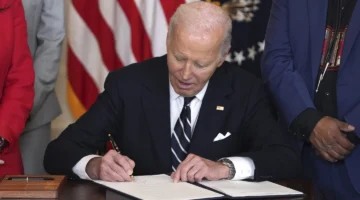Florida legislators to consider racial impact of proposals
African Americans account for nearly half of the 96,000 people locked up in Florida prisons, according to the Department of Corrections, with many thousands more held in local jails, while making up just 17% of the state’s 21.3 million residents.
Those statistics have long concerned social justice advocates who want the Legislature to more deeply consider how crime bills could impact blacks, Latinos and other people of color.
Earlier this month, the Florida Senate finalized a $197,000 contract with Florida State University’s College of Criminology and Criminal Justice to perform the analysis.
Senate President Bill Galvano, a Republican from Bradenton, agreed to the project after being approached by Democratic Sen. Randolph Bracy of Orlando.
An independent review of key legislative proposals could help inform and frame legislative debates, Bracy said.
“I don’t think we’ve done a good job at considering what the impacts are racially and toward certain ethnic groups, as far as social justice is concerned. And we need to do that,” Bracy said.
Bracy had failed for years to get legislation establishing a similar project. He was thankful, he said, for Galvano’s support.
“Senators should have the proper tools available to understand racial and ethnic impacts as part of the vetting process for proposed legislation,” Galvano said Thursday.
Four states — Iowa, Connecticut, Oregon and New Jersey — already require so-called racial impact statements to evaluate proposed legislation, according to the Sentencing Project, a Washington-based advocacy group seeking to change policies that it says produce racial disparities in sentencing. Seven other states are considering implementing similar measures.
“The new policy, while limited in scope, is a good step to better inform lawmakers about the potential racial and ethnic disparity in sentencing reform legislation,” said Kara Gotsch, director of strategic initiatives for the Sentencing Project.
In Florida, reviews will be confined to a few bills before the Senate’s Criminal Justice Committee. The Republican chair and Democratic chair will decide which bills will be vetted.
Florida State researchers will use existing data to forecast the impact of legislative proposals on blacks, Latinos and other communities of color.



No Comment